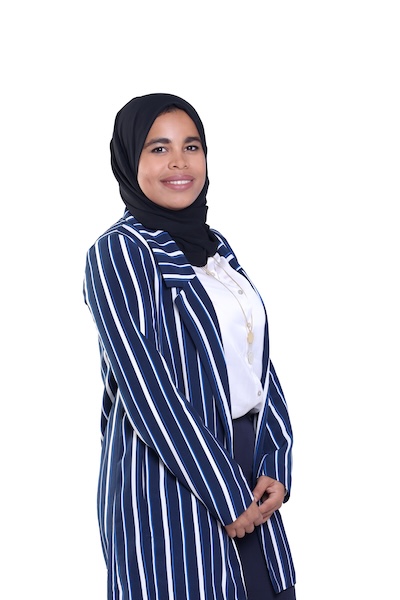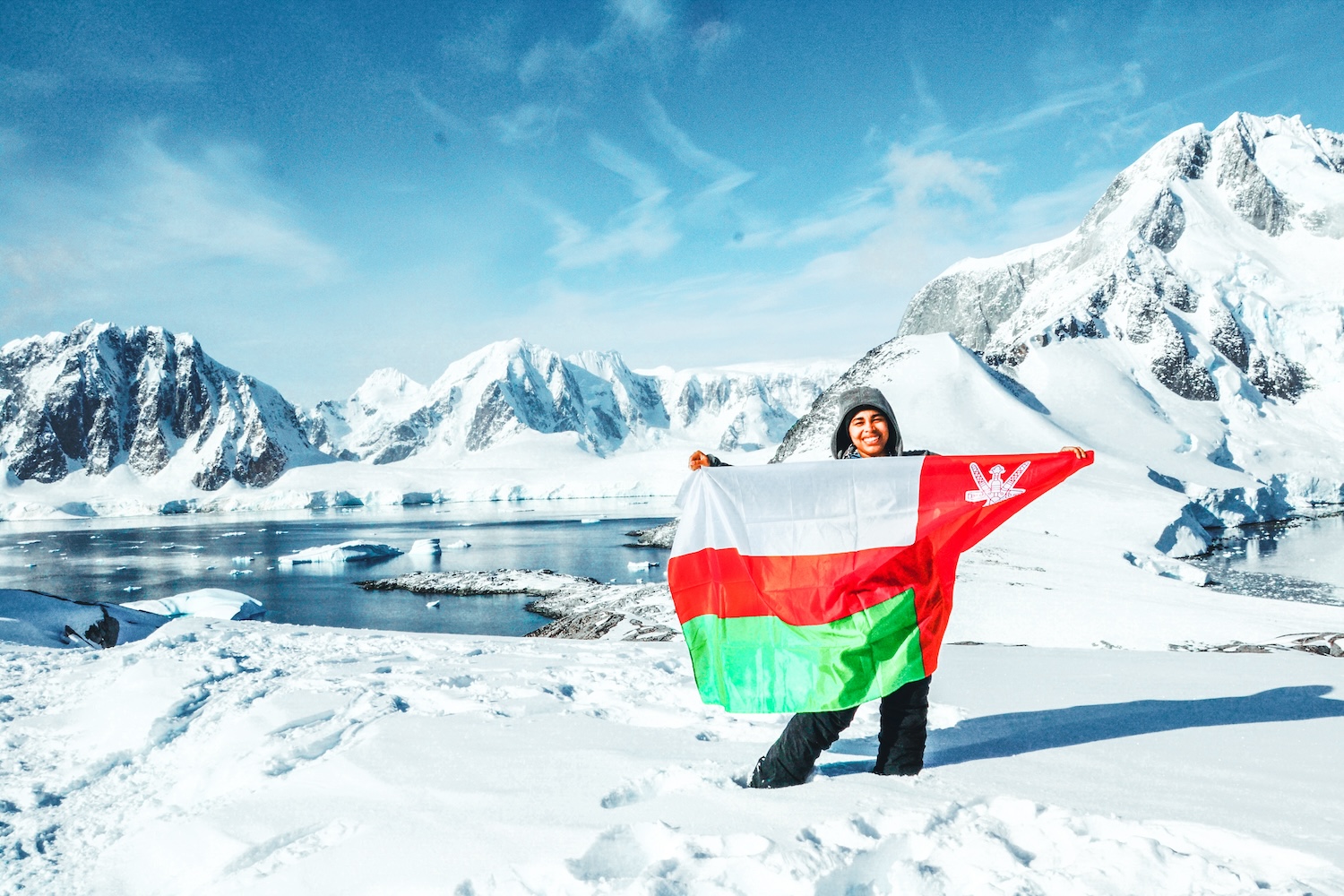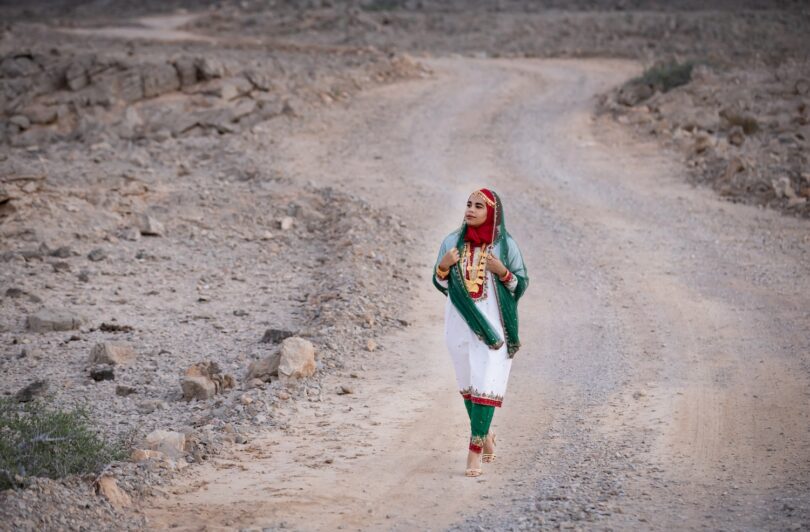Rumaitha Al Busaidi has dedicated her career to protecting the environment and tackling climate change. An inspirational leader with a deserved place on the BBC Top 100 Women list, she shared her thoughts on how empowering women makes a real difference.

Empowering Women with Rumaitha Al Busaidi
Could you tell us about your journey?
My journey is rooted in a profound commitment to environmental stewardship and belief in the power of science and education to drive positive change. Born in Oman, I was captivated by its stunning natural diversity and cultural heritage. This passion led me to pursue an education that spanned continents, from the University of Utrecht and Sultan Qaboos University to prestigious institutions like Harvard and Oxford.
My academic journey, covering environmental science, aquaculture, and public administration, inspired a career dedicated to confronting urgent environmental challenges. My work transcends traditional boundaries, encompassing roles in government advisory, non-profit leadership, and international advocacy, and fostering sustainable development and environmental conservation.
Why are you so passionate about climate change?
The urgency of the climate crisis and its widespread impact across ecosystems and communities ignited my passion for environmental advocacy. Witnessing the detrimental effects on biodiversity, water scarcity, and livelihoods in Oman and beyond, I felt a deep responsibility. These experiences, especially the recent cyclones in Oman, were a catalyst. Climate change isn’t a distant threat; it’s a present reality affecting millions of people, particularly in vulnerable regions. Addressing climate change preserves the environment while ensuring social justice, economic resilience, and a sustainable future for all.
Why is empowering women important?
Women play a crucial role as primary caregivers and community organizers, which positions them to effect change. However, despite their pivotal role, women face barriers that limit their participation in decision-making, especially environmental governance and climate action. Empowering women taps into a wellspring of innovation, resilience, and leadership necessary for crafting effective and inclusive climate solutions. Entire communities benefit from their insights, creativity, and leadership, leading to sustainable and equitable outcomes when fighting climate change.
How did you advise the US government on linking foreign aid to empowering women?
In this role, I championed gender equity, advocating a policy framework that recognizes the interconnection between empowering women and enhancing climate resilience. We developed standards that ensured projects withstand climate impacts while advancing women’s rights and participation. The premise is straightforward yet powerful: climate-resilient communities leverage the strengths and leadership of women. Embedding these principles into foreign aid fosters a climate approach that addresses environmental and social vulnerabilities, leading to sustainable development models.
Could you describe your work with the Environment Society of Oman and the country’s transition to green hydrogen?
My involvement reflects a dual commitment to preserving Oman’s natural heritage and spearheading its transition to sustainable energy. The Environment Society of Oman’s work spans from conservation projects protecting endangered species and ecosystems to educational programs that foster environmental awareness with dedicated programs targeting women, education and capacity building.
Regarding green hydrogen, I promote this clean energy as a cornerstone of Oman’s energy diversification. It represents a groundbreaking opportunity to reduce the carbon footprint, create economic opportunities, and lead the global shift towards renewable energy. Oman’s abundant solar and wind resources can underpin a sustainable, competitive green hydrogen sector that contributes to global decarbonization.

Your trek to the South Pole was a great achievement. What inspired you?
The expedition was inspired by a desire to push my limits and highlight the stark realities of climate change in one of Earth’s final frontiers. I also bet my grandfather that women were capable of venturing into a 56-day expedition, breaking gender stereotypes. This journey was more than a physical challenge; it was a symbolic act to highlight the vulnerability of polar regions to climate change and the implications of melting ice caps. By undertaking this trek, I raised awareness about the urgent need for concerted global efforts to combat climate change, emphasizing that even the remote corners of our planet are not immune. Indirectly, it served as an example for my countrywomen that the sky’s the limit for their aspirations.
What is your environmental message to other women?
My message is one of empowerment and encouragement. The fight against climate change needs your voices, your ideas, and your leadership. Do not underestimate the impact you can have, whether through advocacy, education, innovation, or policy. Embrace your unique perspectives and experiences, and leverage any platforms available to enact change. Whether it’s through scientific research, community organizing, policy advocacy, or entrepreneurship, every contribution matters. Remember, empowering women is more than addressing gender equity; it’s about harnessing the collective power and wisdom of humanity to safeguard our planet.
Your journey may be fraught with challenges, but it’s also filled with the potential for significant impact. Stand firm in your convictions, seek mentors and allies, and never underestimate the ripple effect of your actions. Together, we can drive a transformative shift towards a more sustainable and equitable world. Your passion, resilience, and dedication can unlock the solutions we need to combat climate change. Let’s make history, by what we achieve individually and by how we inspire others.
Related articles:
Championing Equity & Empowerment in Ocean Science







